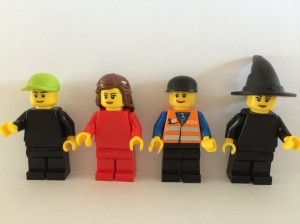One area students with autism can find particularly challenging is working in groups. As teenagers, the unwritten social rules in these circumstances combined with the expectations of the teacher is a complex tightrope to walk. This added to the natural honesty of most students with autism, and sensory difficulties that make dealing with a classroom full of noise a painful experience means that group work often ends up fraught. The good news is there are lots of easy ways to alleviate the stress caused by group work and ensure that students learn and that those with autism and their peers all benefit from the experience.
Here are my top 5:
- Make your expectations clear; be overt about it where possible, breaking down what you want students to do or talk about into a checklist, this will give the group more structure and more predictability for the student with autism, allowing them to process their thoughts about future points rather than feeling anxious about what will be discussed next.
- Provide students with a group work phases card (you can download an editable one here to help you get started). Using set phrase starters to help students express their ideas, will help remind all students to praise good ideas their peers give and challenge those ideas they disagree with respectfully. An added bonus of these cards for students with autism is the further structure they will provide to the experience.
- If possible consider allowing the group containing the student with autism to work in a quieter area of the room or the building. There is nothing better than a room full of eager students all expressing their ideas, it’s a sound that very literally is music to my ears. Unfortunately many of my students disagree, high noise levels in the room are one of the biggest reasons that they find group work so difficult.
- Look at technology for ways to allow those students who feel unable to participate verbally to give their ideas and join in with their peers (either when they are physically in the room, or from a totally different area). Microsoft 365’s OneNote Class NoteBook offers fantastic potential for this within its collaboration space, where multiple students can type their ideas into the same document from different laptops. I already know that this is going to prove an invaluable resource in my classroom this year for those for whom physical group work is just too challenging.
- Have high expectations of everyone in the room, the better the behaviour in the room of the other students, the more predictable the atmosphere will be, and the more able to cope your students will feel.
There are so many skills our students learn from group work, let’s make sure that this year we enable them to do it. Let’s make this the part of our lessons students with autism look forward to rather than dread. With a few simple changes, I know we can do it!

Hi. I have a diagnosis of Aspergers Syndrome and believe me teamwork is not my favourite subject. I think it’s to do with the fact that I want to get it done by a specific deadline. There are people in the world that are more laid back than me and do things at the last minute. I also have the fear that they will do it wrong. I have worked in groups with other people with Aspergers and my tip is be very blunt and very direct. Even if you think you are coming across as rude, a lot of aspies will not pick up on it. They’ll actually thank you for giving them clear instructions. As for me, I’m improving all the time. I’ll never be a natural team worker but if I put my mind to it and focus, I can almost convince myself that I like teamwork.
LikeLike
Thank you so much for taking the time to comment, I really appreciate your points.
LikeLike